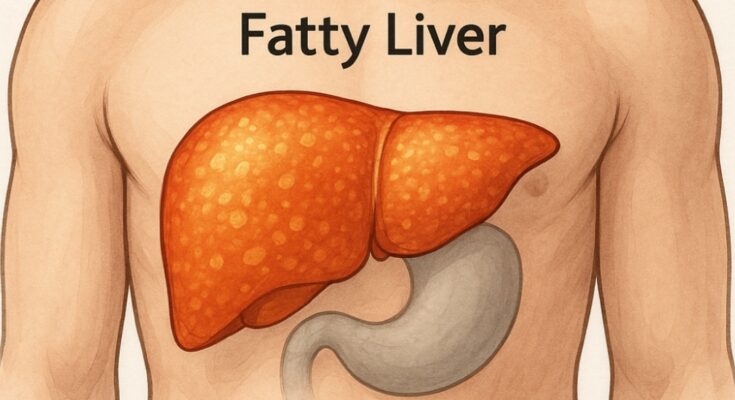Fatty liver disease is now one of the most widespread health problems globally, yet misinformation continues to fuel dangerous myths. Dr. Saurabh Sethi, a gastroenterologist trained at Harvard and Stanford, recently debunked the three most common misconceptions surrounding this silent but serious condition.
—
Myth 1: Fatty Liver is Caused by Eating Fat
Many believe that eating too much fat directly leads to fatty liver disease. According to Dr. Sethi, this is false. The real culprits are diets high in processed sugars (especially fructose) and unhealthy oils.
Healthy fats such as those from extra virgin olive oil, avocados, and nuts actually benefit the liver. The problem arises when people consume large amounts of sugary foods and processed oils, which lead to fat buildup in the liver.
👉 SEO Tip: Instead of cutting all fats, focus on eliminating sugary drinks, fried fast food, and processed snacks. A diet rich in whole foods and healthy fats supports liver function and overall wellness.
—
Myth 2: Fatty Liver is Harmless
Another dangerous misconception is that fatty liver disease is not serious. In reality, it often progresses silently until it causes severe liver damage.
When more than 5% of the liver’s weight is fat, it can trigger inflammation, scarring, and in advanced cases, cirrhosis or liver failure. Research shows that untreated fatty liver disease significantly increases the risk of liver cancer and other life-threatening conditions.
Because the disease usually has no early symptoms, many people don’t realize they have it until complications arise. Early detection through routine health checkups, combined with diet and exercise, is essential to prevent progression.
—
Myth 3: Supplements are the Key Treatment
While supplements like milk thistle, omega-3 fatty acids, vitamin E, and N-acetylcysteine may provide some benefits, they are not a cure for fatty liver disease.
The most effective treatment remains a healthy lifestyle:
Balanced diet with unprocessed foods
Regular exercise
Weight management
Supplements can be supportive but should only be used under medical supervision, as they may cause side effects or interact with prescribed medications.
—
How to Prevent Fatty Liver Disease
The best defense against fatty liver disease is prevention through lifestyle choices:
1. Healthy Eating
Choose fiber-rich foods: fruits, vegetables, whole grains
Include healthy fats: olive oil, nuts, fatty fish
Avoid sugary drinks, processed snacks, and excess alcohol
2. Regular Physical Activity
Aim for daily moderate exercise such as walking, cycling, or swimming
Helps reduce liver fat, manage weight, and improve insulin sensitivity
3. Weight Management
Losing just 3–5% of body weight can significantly reduce liver fat
Even small weight reductions improve liver enzymes and reduce inflammation
4. Regular Health Checkups
Blood tests and imaging help detect fatty liver early
Those with diabetes, obesity, or high cholesterol should be extra cautious
—
⚠️ Disclaimer: This article is for informational purposes only and should not replace medical advice. Always consult a healthcare professional for diagnosis



